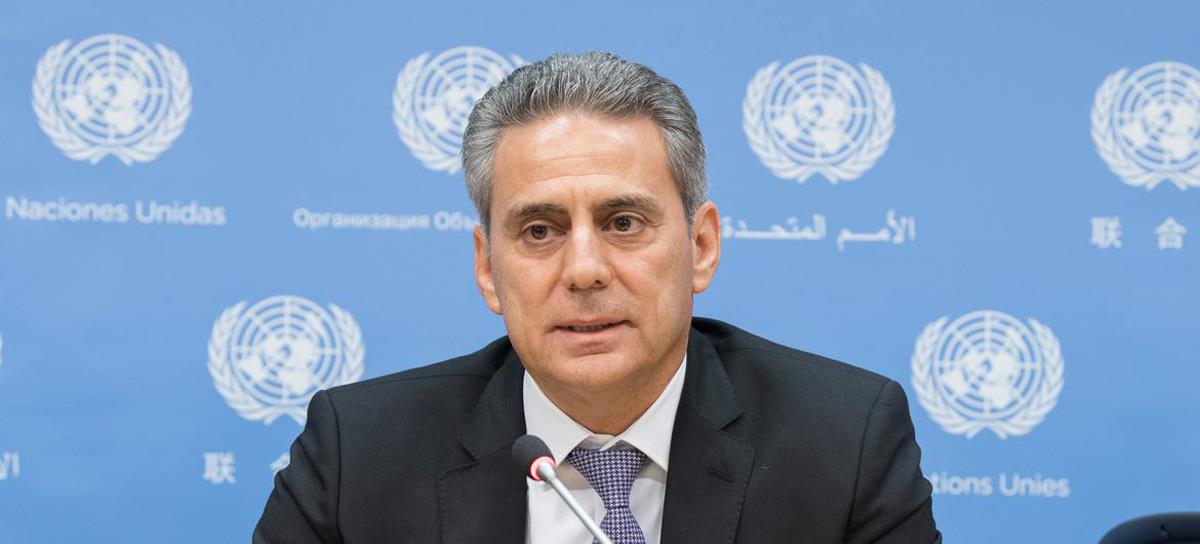
403
Sorry!!
Error! We're sorry, but the page you were looking for doesn't exist.
UN: Insecurity, Hostilities In West Bank Hinder Humanitarian Efforts
(MENAFN- Jordan News Agency)
Amman, June 27 (Petra) - The United Nations Coordinator for Humanitarian Affairs in the Occupied Palestinian Territory, Muhannad Hadi, visited the West Bank on Wednesday to look firsthand at the restrictions imposed by Israeli occupation authorities due to settlement expansion, which has significantly increased humanitarian needs.
The United Nations Office for the Coordination of Humanitarian Affairs (OCHA) reported that the mission, organized by the OCHA and the United Nations Relief and Works Agency for Palestine Refugees (UNRWA), included visits to Tulkarm city and its neighboring camps, Tulkarm and Nour al-Shams. Hadi met with local communities to discuss the impact of repeated operations conducted by Israeli forces in these camps.
The OCHA noted that 536 Palestinians have been killed across the West Bank, including East Jerusalem, since October 7, with nearly a quarter of the victims being children. The fatalities include at least 10 individuals killed by Israeli settlers. Additionally, approximately 5,400 Palestinians have been injured in these incidents.
Between June 18 and 24, the OCHA documented 18 attacks by Israeli settlers throughout the West Bank, resulting in injuries and damage to Palestinian property.
Regarding the situation in Gaza, the OCHA highlighted that insecurity and ongoing hostilities in the West Bank remain significant obstacles to humanitarian operations. Last week, several attacks affected the Al-Mawasi area, where many displaced people have sought refuge.
One of the main challenges is obtaining supplies from the Karam Abu Salem crossing. Humanitarian organizations have had to navigate criminal activities along the only available road, compounded by nearby Israeli military operations. Israeli authorities continue to restrict alternative routes, it added.
In Gaza, partners supporting healthcare are warning that power outages due to fuel shortages are endangering the lives of critically ill patients, including newborns, kidney patients, and those in intensive care. These outages also hinder efforts to address the water, sanitation, and hygiene crisis in the region.
The OCHA reported that water production from groundwater wells, Gaza's primary water supply source, has decreased by over 50%, dropping from 35,000 cubic meters per day to just 15,000.
Amman, June 27 (Petra) - The United Nations Coordinator for Humanitarian Affairs in the Occupied Palestinian Territory, Muhannad Hadi, visited the West Bank on Wednesday to look firsthand at the restrictions imposed by Israeli occupation authorities due to settlement expansion, which has significantly increased humanitarian needs.
The United Nations Office for the Coordination of Humanitarian Affairs (OCHA) reported that the mission, organized by the OCHA and the United Nations Relief and Works Agency for Palestine Refugees (UNRWA), included visits to Tulkarm city and its neighboring camps, Tulkarm and Nour al-Shams. Hadi met with local communities to discuss the impact of repeated operations conducted by Israeli forces in these camps.
The OCHA noted that 536 Palestinians have been killed across the West Bank, including East Jerusalem, since October 7, with nearly a quarter of the victims being children. The fatalities include at least 10 individuals killed by Israeli settlers. Additionally, approximately 5,400 Palestinians have been injured in these incidents.
Between June 18 and 24, the OCHA documented 18 attacks by Israeli settlers throughout the West Bank, resulting in injuries and damage to Palestinian property.
Regarding the situation in Gaza, the OCHA highlighted that insecurity and ongoing hostilities in the West Bank remain significant obstacles to humanitarian operations. Last week, several attacks affected the Al-Mawasi area, where many displaced people have sought refuge.
One of the main challenges is obtaining supplies from the Karam Abu Salem crossing. Humanitarian organizations have had to navigate criminal activities along the only available road, compounded by nearby Israeli military operations. Israeli authorities continue to restrict alternative routes, it added.
In Gaza, partners supporting healthcare are warning that power outages due to fuel shortages are endangering the lives of critically ill patients, including newborns, kidney patients, and those in intensive care. These outages also hinder efforts to address the water, sanitation, and hygiene crisis in the region.
The OCHA reported that water production from groundwater wells, Gaza's primary water supply source, has decreased by over 50%, dropping from 35,000 cubic meters per day to just 15,000.

Legal Disclaimer:
MENAFN provides the
information “as is” without warranty of any kind. We do not accept
any responsibility or liability for the accuracy, content, images,
videos, licenses, completeness, legality, or reliability of the information
contained in this article. If you have any complaints or copyright
issues related to this article, kindly contact the provider above.

















Comments
No comment